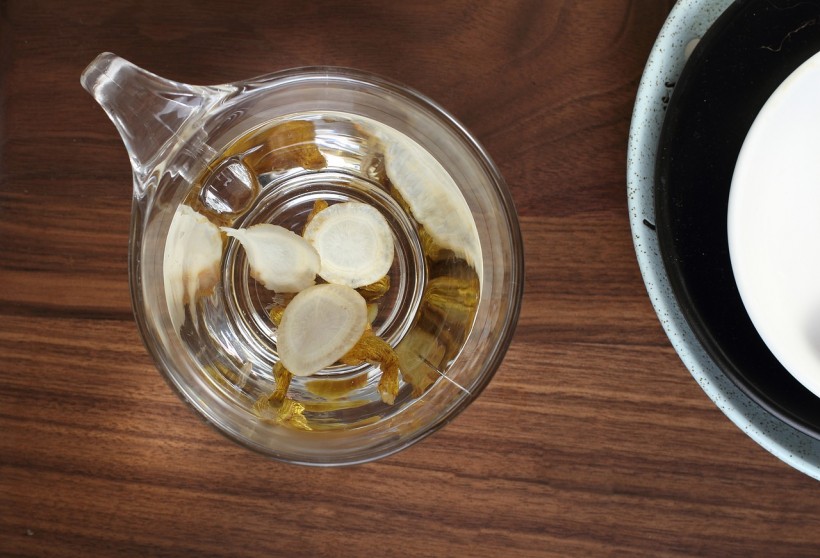
Millions of people around the world suffer from a disease that causes your blood sugar levels to shoot up. This disease, known as diabetes, prevents people from producing insulin, a hormone that helps glucose give energy to your body's cells.
Diabetes can potentially be a deadly disease, as high blood sugar levels can cause blood vessel damage, heart disease, strokes, vision problems, kidney disease, and nerve complications. Similarly, low blood sugar levels can result in coma or even death.
While most people suffering from diabetes take either medicine or insulin injections to control their condition, there are also private label supplements that effectively help lower blood sugar.
Here's our recommendation of the best supplements that every diabetic patient should get their hands on:
1) Cinnamon
Cinnamon has long since been used for varying health reasons, either in the form of cinnamon extract or powder. Studies have shown that cinnamon makes an individual's cells more receptive to insulin, thereby opening them up to sugar and reducing the body's blood sugar levels.
The recommended daily intake for cinnamon is 250 mg of extract twice a day. This should be taken before meals. Care should be taken about which type of cinnamon supplement is used, with Ceylon being the best as it contains low amounts of coumarin, a substance that is harmful to the liver.
2) Chromium
Chromium is a trace element that helps metabolize carbohydrates. A deficiency of the element increases the body's insulin requirements as carbohydrates are not being properly utilised for energy. Studies have shown that consuming chromium aids pancreatic cells in insulin production while also allowing the body to take advantage of the effects of insulin fully.
The recommended dose for chromium is between 200 mcg and 1,000 mcg a day, with chromium picolinate being the best kind. It's also best to know that certain medicines, particularly those used for heartburn, prevent chromium from acting effectively.
3) American Ginseng
An herbaceous plant, American ginseng is widely known for its ability to lower both post-meal and fasting blood sugar levels. Conducted studies recorded a twenty percent decrease in post-meal blood sugar levels and a ten percent decrease in fasting blood sugar levels when individuals included American ginseng as part of their daily diet.
Basically, American ginseng works by improving the cells' responsiveness to insulin production, and it is best taken up to an hour before meals in quantities of one gram. However, caution needs to be taken when intaking American ginseng as it does not react well with all medication. In particular, the plant reduces the effect of warfarin and also does not pair well with immunosuppressant drugs.
4) Vitamin B-1
Alternatively known as thiamine, vitamin B-1 is an essential component of a healthy life. A key marker of diabetes is thiamine deficiency. Since a lack of thiamine leads to heart and blood vessel complications, it also has an adverse effect on the individual's blood sugar levels.
Since vitamin B-1 is water-soluble, it encounters some trouble while getting into the cells. To avoid the ineffectiveness of this treatment, it is best to take benfotiamine, which is vitamin B-1 in its supplemental form since it has lipid-soluble properties.
5) Aloe Vera
Aloe Vera is close to being the holy grail of all things natural, whether supplemental or medicinal. Not only is it used for a variety of skincare and haircare remedies, but it also possesses a knack for helping out in diabetic conditions. The plant works by aiding pancreatic cells in insulin production.
Aloe Vera lowers both A1C and fasting blood sugar levels in individuals suffering from type 2 diabetes and prediabetes. Studies have shown that Aloe Vera consumption lowers blood sugar by 46.6 mg/dl, with even better results experienced by people with higher blood sugar.
Aloe Vera can be taken in both supplemental or juice form, with daily dosage being 1,000 mg capsules or 30 ml of juice. Care needs to be taken as Aloe Vera does not interact well with a range of medications.
So, there you have it, surefire supplements that will help better diabetes. However, it is crucial to remember that supplements are not a replacement for medical treatment, and they should only be used in conjunction to help improve the person's condition. Moreover, it is always recommendable to consult your doctor before including any supplements into your diet as some of them may not react well with certain medications. That being said, supplements can be highly effective for diabetes treatment when used properly.
6) Fiber
Fiber plays a crucial role in managing blood sugar levels as it slows down the absorption of glucose in the bloodstream, resulting in more stable blood sugar levels. Including high-fiber foods, such as fruits, vegetables, whole grains, and legumes, in your diet can help regulate blood sugar. Additionally, supplementing with fiber, such as psyllium husk or glucomannan (that is the main ingredient in Klinio's supplements), can be an effective way to increase fiber intake and promote better blood sugar control. Remember to consult with a healthcare professional or registered dietitian before incorporating any supplements into your routine to ensure they align with your specific needs and health goals
© 2024 NatureWorldNews.com All rights reserved. Do not reproduce without permission.
* This is a contributed article and this content does not necessarily represent the views of natureworldnews.com




![Great White Sharks Observed for the First Time Changing Their Behavior in Different Marine Environments [Study]](https://1471793142.rsc.cdn77.org/data/thumbs/full/70251/280/157/50/40/great-white-sharks-observed-for-the-first-time-changing-their-behavior-in-different-marine-environments-study.jpg)
